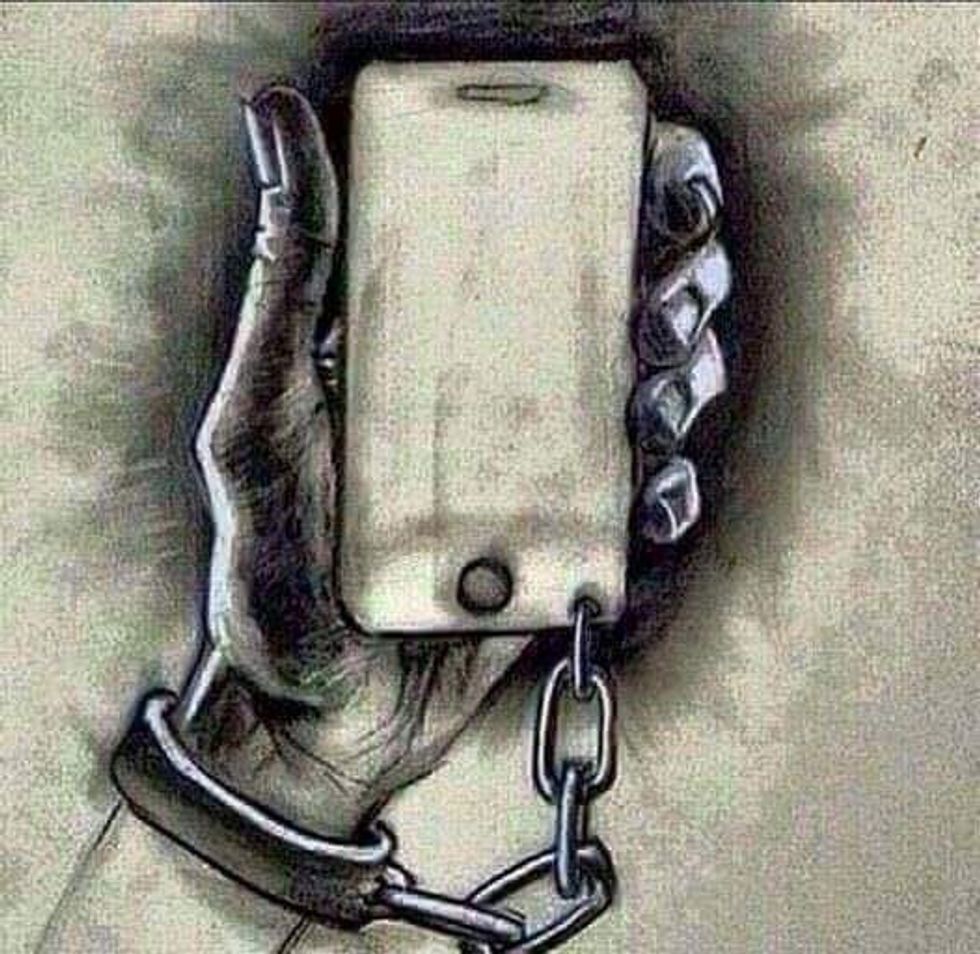Depression seems to haunt everyone nowadays. A recent big time example includes violinist Lindsey Stirling, who attacked depression outright through admitting she needed (and still needs) a confident to pull her out of her depression. For her, that confidant is God.
For my generation, that confidant is Twitter.
Who would have guessed that Lindsey Stirling struggled through depression? For me, her admittance of her ongoing depression was a shock; but it was an inspiration to learn about her story.
Most of the shock I feel comes from what I see on my Twitter feeds. I have been known to take Twitter too seriously. A tweet doesn't mean anything, right? How seriously should you take a 140 character message? That wasn't rhetorical.
I, for one, have been disturbed by the sentiments I find on Twitter. Scrolling through, you are bound to find some sort of admittance of self-worthlessness, feelings of loneliness, and "real" thoughts that plague the average tweeter's mind. I myself have succumbed to this bandwagon of retweeting depressing realities that we can all relate to. In turn, I was rewarded with likes. It was nice until I realized the trap of that mentality.
Whenever I was going through tough times, I would run long distance, learn new piano songs, and write stories and passages (like this) about issues that bothered me. These were all real coping mechanisms that helped me. I had to learn to become optimistic internally, and I felt fine. But when I became exposed to a digital world of unhappiness, it was addictive.
It was disheartening to see others unhappy, but it was normal. Twitter made me feel like I was addressing an issue just through admittance—but really all I was doing was reminding myself over and over again what really bothered me. So I stuck to it. And many other seem to be caught in that same trap—the trap of the Twitter mentality.
Twitter is perfect for connecting with people without actually connecting with people. It is a form of outreach, but so limited in intimacy that the vulnerability isn't thrown outside of our comfort zones. Through a tweet, anyone can get away with anti-self sentiment without attracting too much attention. After all, it is only a 140 character tweet. It's not a meant to be taken as a serious confession that requires intervention.
Twitter has become a false consular to our problems. With Twitter, we can say things like depression is inescapable, or how dreadful being alone is or how worthless we feel. We vent to our Twitter feed, and receive likes or retweets as if someone is distantly saying "I feel for you." It's a morbid discovery when you think about it.
Seeing someone Tweet some sort of depressing message almost seems like a suppressed cry for help. Interacting with the tweet is the only socially acceptable comfort we can offer. After all, they were not confessing to you personally. Just Twitter. It is perceived as awkward to take it to a personal level, because that pulls people out of the comfort zone that Twitter is. Retweeting, meanwhile, is like saying "This relates to me." Do you see the problem? What council do we gain from Twitter? We don't.
We are able to express our sadness or frustrations through social media, which brings some comfort; just enough to last us, but not enough to be meaningful. Afraid to really confide in others, we continue this cycle of validating our own bad feelings through subtle, inconspicuous tweets. What is one sad thought in a sea of similar sentiment? This translates into a cycle of depending on instant gratification to make us feel better about our problems. That's the horrid attraction behind it all. You can connect with others and vent without making yourself vulnerable; without attracting enough attention for others to ask "Are you OK?" Twitter serves as a shield; if someone did ask you what was wrong, it would be "weird" or seemingly unwarranted, and easily pushed aside with a laughing emoticon.
Why are we so afraid to reach out to others? People believe that there are issues only they themselves can solve. As if they don't want to burden others. It is awkward—in my generation—to talk about problems. We would rather place more attention and thought to our iPhones rather than the person sitting across from us, or the person who lives close to us, or someone we know would take care of us when comfort is needed most. We might as well shackle our phones to our wrist because our relationships revolve around them.
Scroll down your Twitter profile. See how long you have gone confiding in social media for your darker thoughts. Have you hired Twitter to be your counselor? If so, you got what you paid for. With someone that cares deeply for you, though, you gain an actual confident that will help you.
I challenge readers to let someone know how deeply you care for them, and that you are there for them whenever they are going through a rough time. That in itself truly makes a difference. It gives hope and the potential to break the hazardous cycle of anti-self validation that Twitter offers.
Don't get me wrong, Twitter is not the enemy. It's our Superman mentality, our fear to burden or worry others, to appear vulnerable or weak. It's our Twitter mentality, our pattern of negative thinking that any form of social media can easily trap us in. Help me break this cycle that too many individuals are stuck in. Stop expressing self-worthlessness and call someone up instead. Let others know you care. Can you change the life of someone you care for, just by letting them know you are willing to help?






















